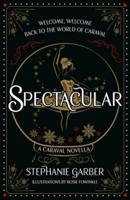Publisher's Synopsis
Excerpt from The History of Scotland, Vol. 2: From the Earliest Period to the Present Time
The king opened the meeting of the general assembly at Dundee with an in sidious speech, in which he dwelt on the services which he pretended to have done to the church in removing controversy and establishing discipline, and declared that he was now labouring chiefly to restore its patrimony, in order that the stipends of the ministers might be raised. In order to eu sure success in this matter, he said it was necessary that the kirk should have a voice in parliament. I mind not, he said, to bring in papistical or anglican bishops, but only to have the best and wisest of the ministry appointed by the general assembly to have place in the council, to deliberate on their own affairs, and not to stand always at the door like poor supplicants, despised and disregarded. This address was fol lowed by a very warm debate, in which the zealous ministers who remained in the as sembly, such as James Melvil, Davidson, Bruce, Carmichael, and Aird, spoke in strong terms against the court project, which was defended chiefly by Gledstanes and by the king himself. But James calculated far less on the force of arguments, than on that of numbers, which he was aware that he had now secured. As on the former occasion, the great strength of this assembly consisted of the northern ministers, who are described by the presbyterian writers as a mere sub. Servient rabble, who came to vote as the king directed them. Yet the opposition was very strong. It was at last resolved by a majority of ten, that it was necessary and expedient for the weal of the kirk, that the ministry, as the third estate of the realm. About the Publisher Forgotten Books publishes hundreds of thousands of rare and classic books. Find more at www.forgottenbooks.com This book is a reproduction of an important historical work. Forgotten Books uses state-of-the-art technology to digitally reconstruct the work, preserving the original format whilst repairing imperfections present in the aged copy. In rare cases, an imperfection in the original, such as a blemish or missing page, may be replicated in our edition. We do, however, repair the vast majority of imperfections successfully; any imperfections that remain are intentionally left to preserve the state of such historical works.

























